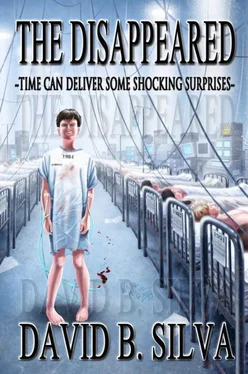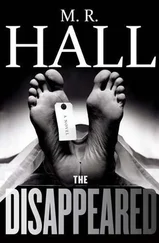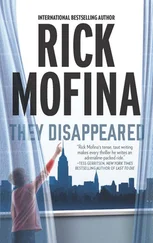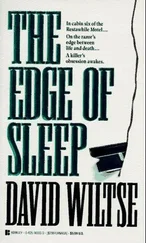Teri listened, suddenly hating herself for having put him in this position.
“And yes, I had some psychological problems.”
“I don’t care about that. I just want you to know that I understand.”
“Really? Then you’re doing better than I am, because I don’t think I understand.”
“It must have been hell – what you’re father did to you.”
“It was a long time ago.”
“The past haunts us all,” Teri said.
He turned away from the last sliver of sunset, his face expressionless. “I suppose you would know that better than most, after everything you’ve been through.”
“I was just worried about you,” she said.
“No need. I’m all right.”
“Guess I should have known that.”
Walt’s face was drawn, though he managed to find room for a slightly self-conscious smile. It wasn’t the tragic smile Teri had half-expected to see. Instead, it was a break in the ice that had seemed to form between them earlier in the day.
“Yes, you should have,” he said.
Teri managed a smile of her own. “Friends?”
“Friends.”
“What we need to do is get the two kids moved out of here as soon as possible. If the Knight woman starts nosing around—and I think we all know she’s going to do just that—then we damn well better not have her kid in the basement, yelling for his mommy.”
“We can move them into a motel in the morning,” Mitch said.
“And then move them out to Houston from there,” Childs suggested.
D.C. studied the doc, looking for anything that might indicate what was really going on inside the man’s head. He had watched Childs swing from one mood to another like a chimpanzee trying to find a vine that might support him. The man had finally gotten himself under control again, but as far as D.C. was concerned he was running out of vines.
“How long will it take?”
“To get them to Houston?”
“Yes,” he said sharply. “To get them to… Houston .”
“The same day, if there’s a flight going out.”
“Tomorrow?”
Childs nodded.
“Then why don’t we do that.”
“What about the others?” Mitch asked.
“Well, since we can’t move them all—”
“How about a little sleight of hand,” Childs said. “We could leave them right where they are. No one’s likely to stumble across them in the basement, anyway. But if we fix up the first floor… maybe move some equipment down, bring in some monkeys and rats, pay a few indigents to let us draw blood, that kind of thing… maybe that’s all we would need to put her off for another week or so.”
“Might work,” D.C. said. He pulled a single cigarette out of a pocket and as he sat there thinking, he fingered the cigarette across the back of his hand and back. Between the Knight woman and the kids waking up—not to mention the pressure from Webster—he had already decided that things had gotten too far out of hand. The question was: what should he do about it?
Somewhere down the road—not far down the road, either—they were going to have to shut this thing down. All of it. The operations in Houston and St. Charles and Reston. The operation here. It was his guess that the only person in this room who didn’t understand that was Childs.
“It would probably take two, maybe three days at the most to get it set up,” Childs said. “And it would buy us enough time to work out a more permanent solution.”
“All right, then why don’t we give it a try?”
Outside the grounds of the Devol Research Institute, Walt pulled the Sunbird off the road and into the shadows. He looked across the seat at Teri and raised his eyebrows questioningly. “You sure you want to do this tonight?”
“I want my son.”
“I know you do. But that’s not what I asked you.”
“Yes, tonight. I want him tonight. No more waiting. They’ve had him long enough. I’m not letting them have him another moment.”
“Another day or two and we’d have a much better idea—”
“Tonight,” she said firmly.
“All right.” He leaned back and brought the blueprints out from behind the passenger seat. He slid the rubber bands off each end, unrolled the plans, and used his flashlight as a weight to pin the top against the dashboard. “Let’s take a look at these. How about a little light?”
Teri took the flashlight out of her backpack, turned it on and held it over the plans.
The building was three stories plus a basement. There was an open receptionist’s area when you first went through the front door and two elevators off to the left. Only one of the elevators went down to the basement level. Upstairs appeared to be mostly office space, including a myriad of small cubicles, a couple of conference rooms, and a huge open area that was labeled “ The Lab .” The intended use of the basement appeared less certain. Labeled as “ Storage ,” it appeared to be well wired, with an unusual array of electrical outlets. At the back of the building, sat a loading dock, and next to that, a set of glass double doors. The only other way in or out besides an upstairs window would be what looked to be an emergency exit, next to the only staircase in the building.
“What do you think?” she asked.
“My best guess would be—if they have him, they have him in the basement.”
“How do we get down there?”
Walt pointed to the back of the building, at the emergency exit. “See the stairwell? That’s the only way down unless you want to walk through the front door and try the elevator.”
“And what if he isn’t in the basement?”
“Then I guess we’ll take a walk upstairs.”
Childs had found his way back to the lab, glad to be out of the presence of his quote— associates —unquote. It wasn’t that he didn’t like them; he had never actually liked them. And he had never actually doubted that their feeling for him was mutual. But sometimes when people were forced together in a common goal—or what might appear to be a common goal—it was necessary for the personalities involved to overlook some of the petty quirks of the other group members. And yes, it sounded like a group therapy session, but that was the dynamics of interpersonal relationships. You learned to tolerate your differences.
He pulled out the most recent sample of liver cells taken from the two boys. The first sample belonged to Gabriel Knight. He placed it into the specimen chamber of the electron microscope, positioned it, and turned to the control panel. When he finally brought up the visual, he compared it to a visual display of the cells taken when the Knight boy had still been comatose. There was a marked difference. The mitochondria, which had been round and smooth and resembled the basic form of a grape while the boy was comatose, now looked something more like a raisin. It was shriveled and misshapen. And instead of dividing every five to six days, it teased you, threatening to divide but never quite getting around to it.
There was no denying the evidence. Somehow, through an interaction that Childs still did not fully comprehend, the AA103 had served to keep the Knight boy both comatose and ageless for a good number of years. But suddenly, without an obvious trigger, that causatum had mysteriously shut down. More than that, it appeared the process had actually reversed itself. The body was making up for lost time, so to speak. It was aging at such an alarming rate that before long the boy’s physical maturation might very well overtake his chronological maturation. And after that…
Death , Childs thought glumly.
He pulled out the liver cell sample of the Breswick boy, and exchanged it in the specimen chamber. It was mostly a matter of confirming what he already knew at this point. He had given some thought to the possibility that the DOD might be interested in this new wrinkle, this premature aging. But in his heart, he knew that was more dream than reality. It didn’t take a genius to realize that things were rapidly drawing to a close around here.
Читать дальше












